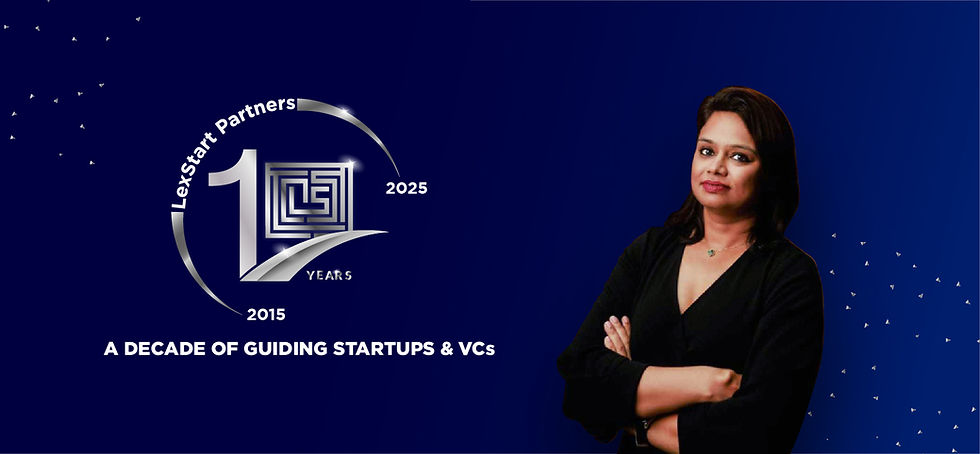Online medical sales across country- Banned by Delhi High Court
- LexStart Team
- Sep 18, 2019
- 4 min read
On Wednesday, December 12, 2018 the Honorable Delhi High Court ordered a ban on sale of online medicines by e-pharmacists across the country. The Honorable Delhi High Court directed the Central government and the Delhi state government to implement the order on an immediate basis. A Public Interest Litigation (PIL) was filed by a Delhi based dermatologist Mr. Zaheer Ahmed who complained that lakhs of medicines were being sold on the internet every day without much regulation, posing a huge risk to both patients and doctors. A bench of Chief Justice Rajendra Menon and Justice V K Rao passed the order while acting on the Public Interest Litigation.
In the plea, the petitioner Mr. Zaheer Ahmed had pointed out that online sale of medicines is actually not permitted under the Drugs and Cosmetics Act, 1940 and Pharmacy Act, 1948 and even though the Drug Controller General of India in 2015 had clearly directed all state drug controllers to protect the interest of public health by restraining such sale online, lakhs of medicines continue to be sold online, often even without prescription. Unable to supervise, the government has failed in its responsibility to protect public health which is its constitutional obligation under Article 21. The petitioner in the PIL mentioned that “Unlike common items, drugs are highly potent, and its misuse or abuse can have serious consequences on human health, not just for the person consuming it but for humanity at large as some drugs can be addictive, habit forming and harmful to the body. A large number of children/minor or people from uneducated rural background use internet and can be victims of wrong medication while ordering medicines online,”. Blaming the government for not doing enough, the plea says online pharmacies are operating without a drug licence and warns that “unregulated sale of medicines online will increase the risk of spurious, misbranded and substandard drugs being sold” adding that “Some drugs have psychotropic substances and can be easily ordered on internet and misused for criminal activities or drug abuse.” The PIL states that Centre is aware of the risks involved in sale of medicines on internet since a panel setup by it for this purpose cautioned as late as September this year about risks involved in the online sale of medicines, particularly, prescription, habit-forming and addictive medicines. In September the Union health ministry had come out with draft rules on sale of drugs by e-pharmacies with an aim to regulate online sale of medicines across India and provide patients accessibility to genuine drugs from authentic online portals. The draft rules on “sale of drugs by e-pharmacy” state that no person will distribute or sell, stock, exhibit or offer for sale of drugs through e-pharmacy portal unless registered.
Further, in the past, the fight between traditional drug sellers and online e-pharmacies had taken a turn when the honorable Madras High Court had granted an interim injunction restraining online sale of medicines till further orders, based on a plea from the Chennai-based Tamil Nadu Chemists & Druggists Association. The court had directed the Centre to respond and posted the matter for further hearing on November 9, 2018.
The association had demanded to block links of websites selling medicines online as purchasing medicines from unlicensed online stores. These websites may sell fake, expired, contaminated, unapproved or unsafe products that are dangerous to patients and which might put their health at risk. Rules for selling drugs in India are based on Drugs and Cosmetics Act, 1940, Drugs and Cosmetics Rule, 1945 and Pharmacy Act, 1948 and these were written prior to arrival of computers and India does not legalize online sale of medicines, the petition said.
In the last two years, the 6-8 lakh odd traditional medical shops, under the banner of All India organization of chemists and druggists (AIOCD) have been protesting against proliferation of e-pharmacies in the country.
It is estimated that about 250-280 online pharmacies have come up in the country and they have cornered over Rs 800-1000 crore of the Indian drug market worth over Rs 1.2 lakh crore a year. Online pharmacies, like in other e-commerce business models, offer discounts ranging from 25 per cent to 60 per cent, besides offering value added services and free home delivery. Sources say half a dozen leaders like netmeds, 1MG, Lifecare, Medlife and Pharmeasy have so far raised over Rs 1,700 crore from venture capitalists and are aggressively marketing their business.
Following the protests, last year the Drug Controller General of India (DGCI) had formed a seven-member panel to look into the issue of online drug sales and had suggested licensing the pharmacies. As per the draft guidelines which are yet to be legalized, e-pharmacies have to register with the DCGI for a fee of Rs 50,000, which will be valid for three years. E-pharmacies will not be allowed to sell narcotic drugs, tranquilizers, and Schedule X drugs and are also not allowed to advertise any drugs.
In the west, the drug regulators have devised mechanism to monitor and regulate e-drug sales. The National Association of Boards of Pharmacy (NABP), the apex pharmacy body in the US, gives registration and certification for e-pharmacies and they have to display the certification logo on their website.




Comments